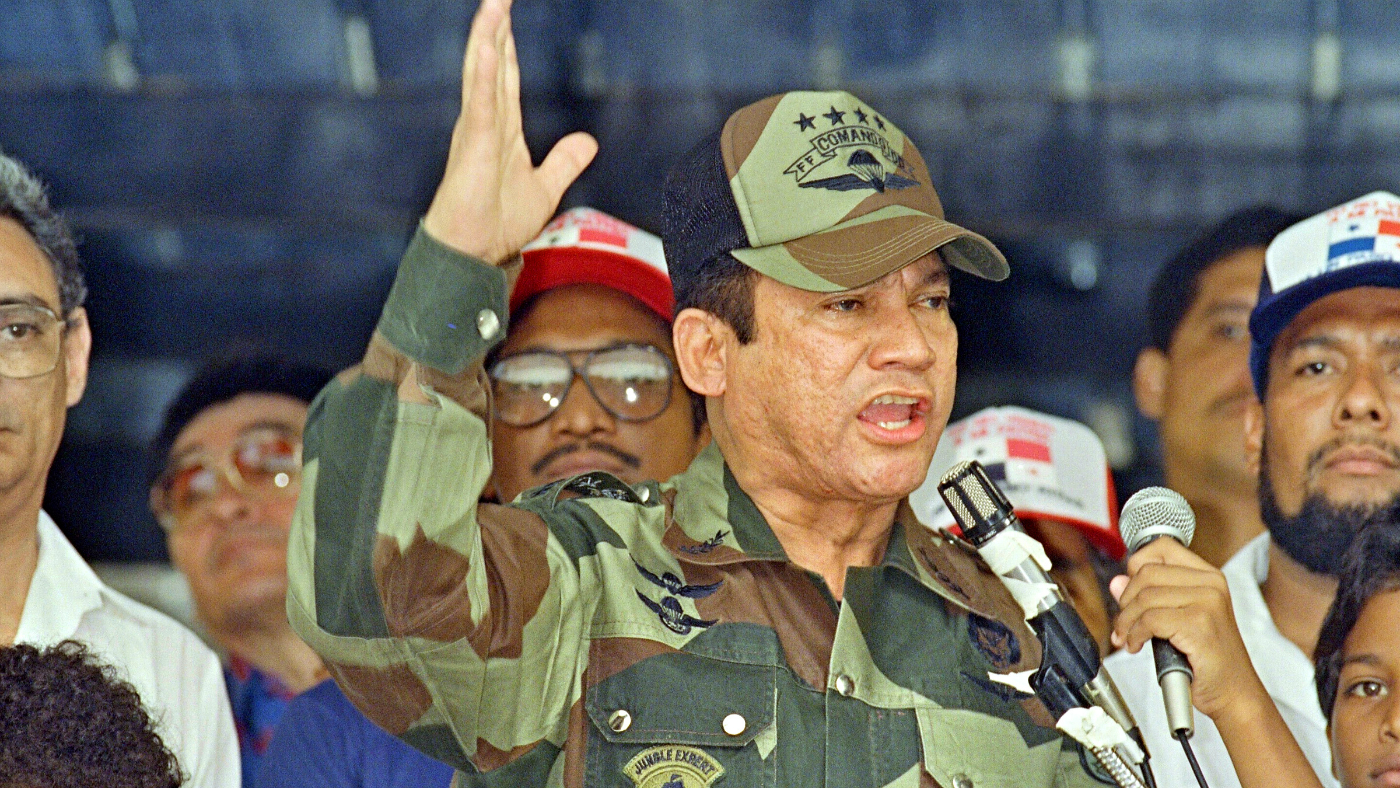Manuel Noriega: The life of Panama's former military dictator
Notorious CIA spy turned drug baron has died aged 83

A free daily email with the biggest news stories of the day – and the best features from TheWeek.com
You are now subscribed
Your newsletter sign-up was successful
Panama's former military dictator Manuel Noriega has died at the age of 83. He had been in an induced coma since undergoing brain surgery in March.
The former general was serving a sentence for murder in Panama when he died. President Juan Carlos Varela announced his death via Twitter late last night and said it marked the end of a chapter in Panama's history.
What was Noriega most renowned for?
The Week
Escape your echo chamber. Get the facts behind the news, plus analysis from multiple perspectives.

Sign up for The Week's Free Newsletters
From our morning news briefing to a weekly Good News Newsletter, get the best of The Week delivered directly to your inbox.
From our morning news briefing to a weekly Good News Newsletter, get the best of The Week delivered directly to your inbox.
A military leader who ruled Panama from 1983 until a US invasion in 1989, Noriega spied for the CIA, trafficked drugs with the knowledge of US officials and had Colombian drug baron Pablo Escobar as a trading partner.
He was later described by a Senate report as "the best example in recent US foreign policy of how a foreign leader is able to manipulate the United States to the detriment of our own interests".
How did he rise to power?
Noriega was a protege of General Omar Torrijos, who stole power in a military coup in 1968. Noriega took on his mentor's role as de facto leader of the country in 1983, two years after Torrijos died in a "mysterious" plane crash, says The Guardian.
A free daily email with the biggest news stories of the day – and the best features from TheWeek.com
What was Noriega's relationship with the US?
Noriega was trained at the School of the Americas, which provided military training to the governments of US-backed Latin American nations.
Throughout his six years as leader of Panama, he spied for the CIA – the agency considered him a "valued asset" against leftist insurgencies in Central America, says The Guardian.
During that time he dealt cocaine on an industrial scale, using the resources of the state, with the knowledge of US officials.
How did his downfall come about?
In 1988, Noriega was indicted by US courts for drug trafficking. His activities had become an embarrassment to the US and the following year newly-elected US President George HW Bush ordered the invasion of Panama. Noriega was captured and flown to the US where he was convicted of drug trafficking by a Florida court in 1992 and sentenced to 40 years in prison, later reduced to 30 years.
After his capture, Noriega tried to turn the tables on the US, saying: "Everything done by the Republic of Panama under my command was known. Panama was an open book."
What about his later years?
After 17 years in a minimum-security jail in the US where he had his own bungalow and gym equipment, Noriega was extradited to France in 2010 and sentenced to seven years in jail for money laundering. In 2011, he was then extradited to Panama, where he was convicted of the murder of political opponents and other charges. In 2015 he asked the country for forgiveness for his past actions.
How did he end his days?
A brain tumour was diagnosed in 2012. In January this year, Noriega was granted house arrest as he prepared for surgery. He spent several weeks at his daughter's home before his operation in March.
-
 Quiz of The Week: 14 – 20 February
Quiz of The Week: 14 – 20 FebruaryQuiz Have you been paying attention to The Week’s news?
-
 The Week Unwrapped: Do the Freemasons have too much sway in the police force?
The Week Unwrapped: Do the Freemasons have too much sway in the police force?Podcast Plus, what does the growing popularity of prediction markets mean for the future? And why are UK film and TV workers struggling?
-
 Properties of the week: pretty thatched cottages
Properties of the week: pretty thatched cottagesThe Week Recommends Featuring homes in West Sussex, Dorset and Suffolk